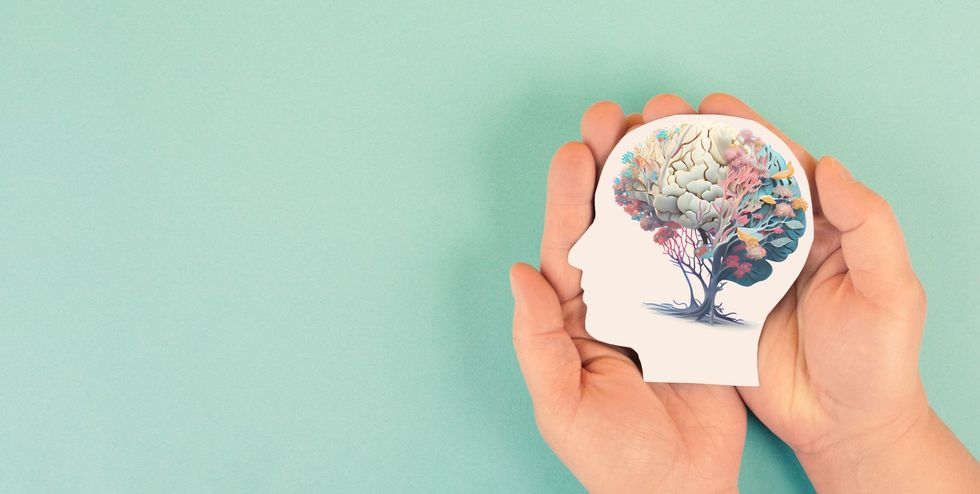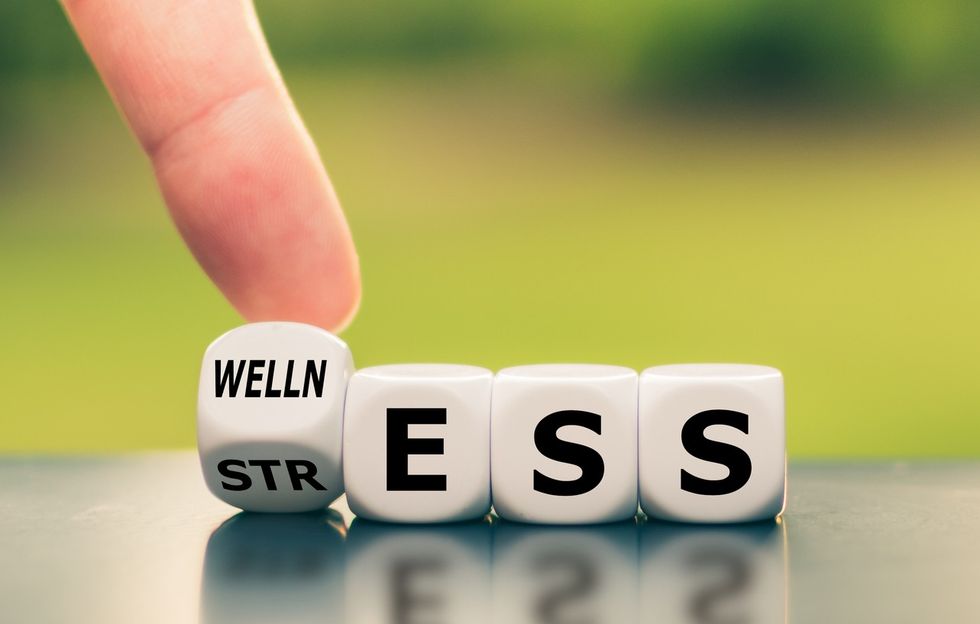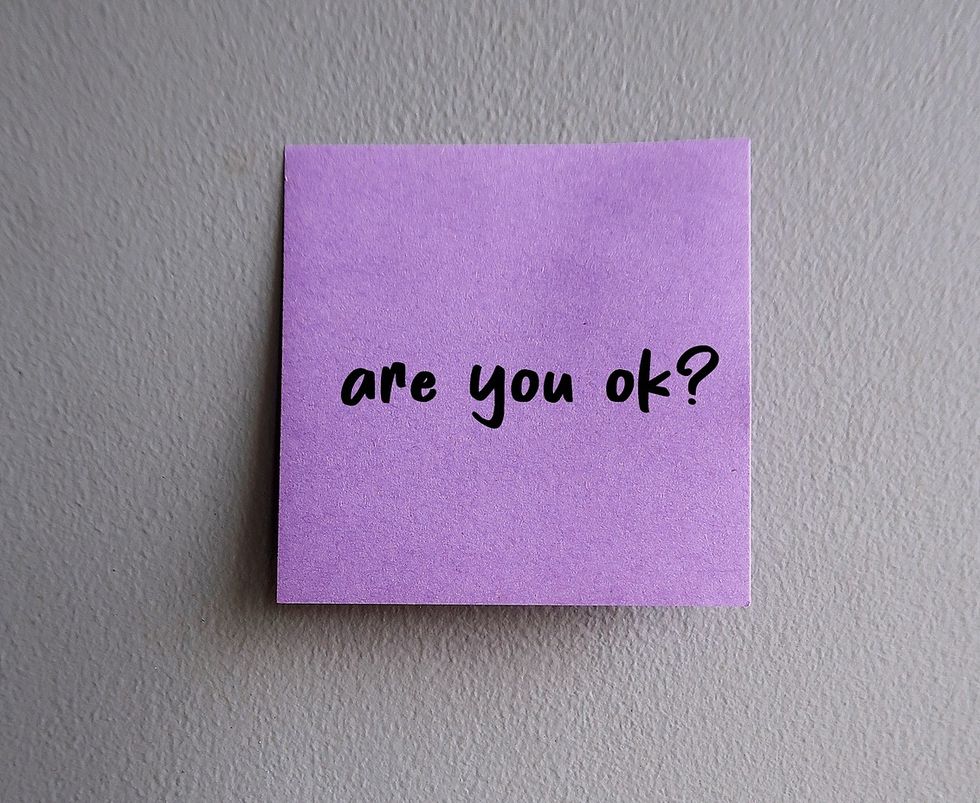In a fast-paced world fraught with stress, anxiety and unprecedented challenges, prioritising mental well-being has never been more important. Whether you are navigating personal struggles or supporting someone else, taking proactive steps can make a real difference. With mental health being an increasingly vital issue, Eastern Eye shares essential tips to help you feel better internally – and ways to support others who may be going through difficult times.
Exercise: Whether it is walking, yoga, dancing, playing a sport or going to the gym, find an activity you enjoy. Regular exercise supports both physical and mental well-being, as it releases endorphins – the body’s natural mood boosters – which help reduce anxiety and depression. It can also build self-confidence and provide opportunities to connect with others.
Sleep: Establish a regular sleep routine, create a calming bedtime environment, and make your space comfortable. Good sleep is a foundation of mental health – and lack of it can worsen stress, anxiety and low mood.
Balanced diet: Nutrition directly affects mental well-being. A diet rich in fruits, vegetables, whole grains and lean proteins can improve mood and energy levels. Omega-3 fatty acids – found in fish, flaxseed and walnuts – are particularly beneficial for brain health.
Gratitude: Focusing on the positives in life can help shift perspective and reduce negative thinking. Gratitude practices, such as journalling or simply reflecting on what you are thankful for, have been shown to significantly boost overall well-being.

Mindfulness: Being present in the moment helps reduce stress. Meditation is a powerful tool for calming the mind and gaining perspective. Grounding techniques, such as deep breathing, focusing on your senses or holding a comforting object, can offer immediate relief. Even a simple hug can help.
Connect: Maintaining social connections is vital. Reach out to friends, family or support groups – and do not be afraid to talk about your feelings. In-person interaction is often more beneficial than virtual connections, so consider spending less time scrolling and more time meeting up.
Set boundaries: Learning to say no is essential for good mental health. Whether it is work, family or social demands, taking a step back is sometimes necessary. Protect your energy and prioritise what matters most to you.
Professional help: If you are struggling, seeking professional help is a sign of strength – not weakness. Doctors, therapists, counsellors and psychiatrists can provide the support and tools needed to improve mental health. Early intervention can help prevent issues from becoming more serious.
Get creative: Creative outlets such as art, music or writing can be powerful tools for processing emotions. Engaging in creativity can relieve stress, promote a sense of achievement and foster human connection.

Limit screen time: Constant exposure to screens can negatively impact mental health. Set boundaries, take regular breaks, and prioritise offline activities – particularly those outdoors – to restore balance.
Self-care: Be kind to yourself, especially during difficult times. Avoid harsh self-judgement and treat yourself with the same compassion you would offer a friend. Practising self-compassion can help reduce guilt, stress and feelings of inadequacy.
Baby steps: Breaking tasks into smaller, manageable steps can help reduce overwhelm. Celebrate small wins – each step forward counts and can help rebuild confidence.
Limit negativity: Whether it is reducing time spent with pessimistic individuals or limiting exposure to distressing news, set boundaries around what you consume. This includes taking breaks from social media when needed for mental clarity.
Seek support: When stress, anxiety, or depression go unaddressed, it’s easy to turn to unhealthy coping habits, but real healing comes from getting the right support. Support like professional addiction treatment offers recovery from dependency but also guidance for improving emotional well-being. Therapists and counsellors can help uncover the root causes of addiction, teach healthier coping skills, and rebuild confidence. Seeking help early can restore balance, strengthen resilience, and create a more stable foundation for both mental health and long-term happiness.
Support others: If someone is struggling, reach out with empathy and patience. Let them know you are there to listen – without judgement or rushing to offer solutions. Sometimes, just being present is powerful. You can also offer practical support – such as helping with daily tasks or accompanying them to an appointment. Ultimately, be patient and supportive as they navigate their path to recovery.
Check in: Follow up with someone you are concerned about, even after the initial conversation. Continued check-ins show care and help them feel less isolated. Similarly, check in with yourself regularly. When facing challenges, acknowledge your emotions rather than suppressing them. Recognising sadness, anger or frustration is often the first step towards healing.

Helping others
Recognising when someone may be struggling is key. Here are some common signs:
■ Behaviour: Withdrawal from social activities, loss of interest, or increased agitation
■ Physical: Fatigue, changes in sleep patterns, weight changes or frequent pain
■ Emotions: Frequent or intense mood swings, such as anger, sadness or irritability
■ Focus: Difficulty concentrating, making decisions or remembering things
■ Expressing: Talking about hopelessness, worthlessness or thoughts of self-harm
■ Vices: Increased use of alcohol, drugs or other substances




